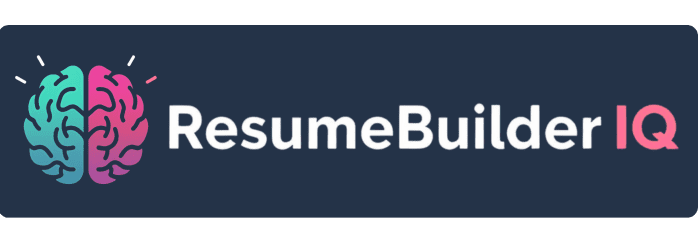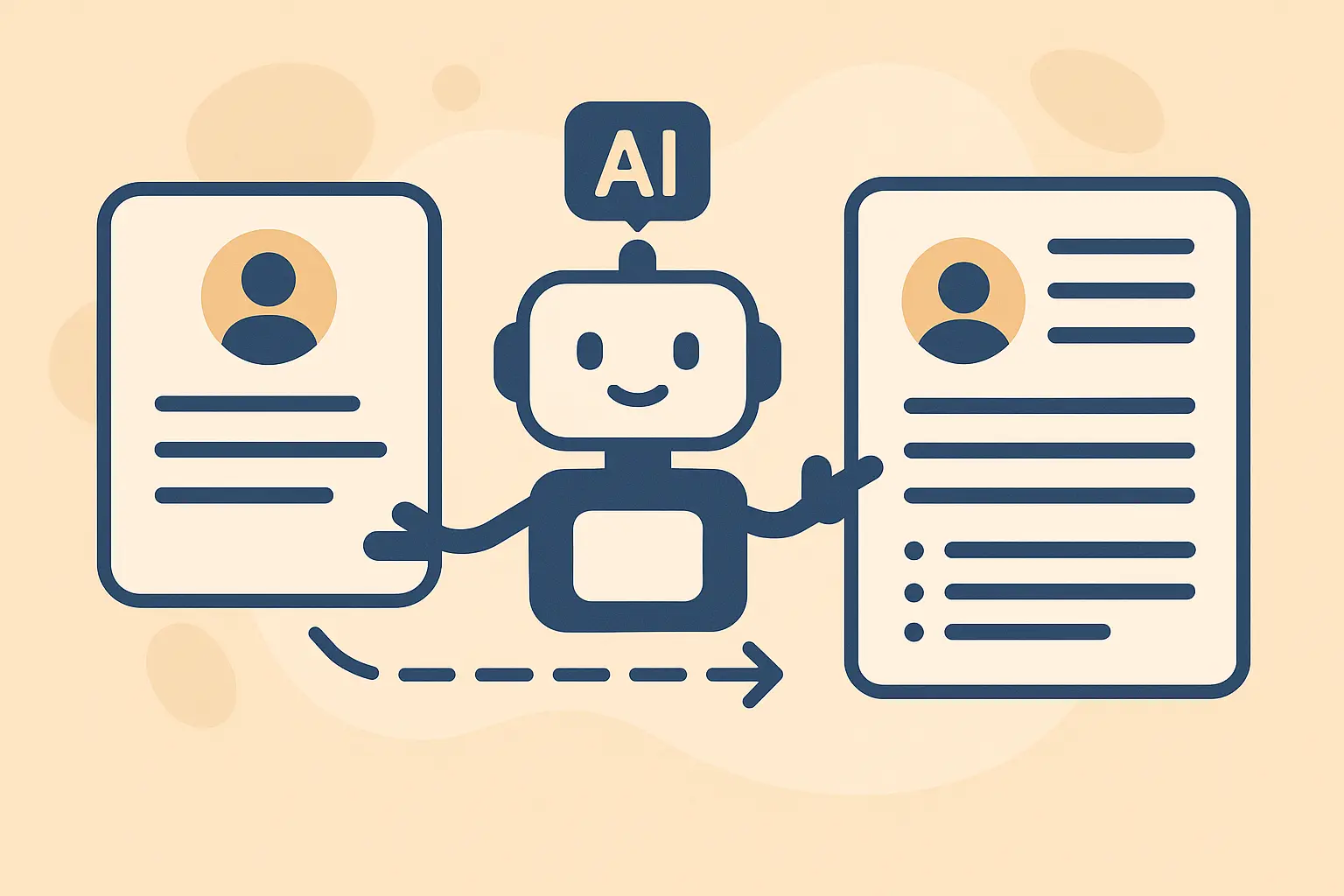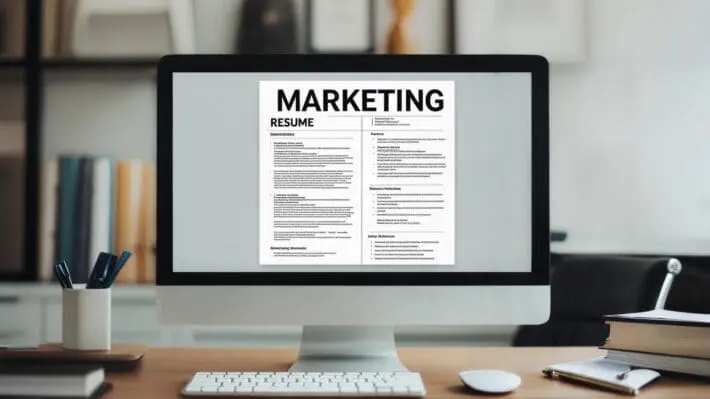Marketing Interview Questions That Actually Matter: What Hiring Managers Really Want to Know

Table of Contents
-
Understanding What Modern Marketing Interviews Really Test
-
The Foundation Questions That Trip Up Most Candidates
-
Digital Marketing Skills They’re Actually Evaluating
-
Campaign Strategy Questions That Reveal Your Strategic Mind
-
Behavioral Questions That Make or Break Your Interview
-
Industry-Specific Curveballs You Need to Anticipate
-
Advanced Scenarios for Senior Marketing Roles
-
How to Prepare Like a Pro (Not Just Another Candidate)
-
Final Thoughts
TL;DR
-
Marketing interviews have evolved way beyond basic knowledge checks – they’re comprehensive evaluations of strategic thinking and adaptability
-
Foundational concepts still matter, but you need to show practical application, not just textbook definitions
-
Digital fluency is non-negotiable – expect deep dives into analytics, attribution, and marketing tech stacks
-
Campaign strategy questions test your ability to think holistically across channels and budgets
-
Behavioral questions reveal collaboration skills and creative problem-solving under pressure
-
Industry context matters enormously – B2B vs B2C approaches require completely different mindsets
-
Senior roles involve crisis management and scaling challenges that test leadership capabilities
-
Preparation means building a portfolio of quantified results, not memorizing generic answers
Understanding What Modern Marketing Interviews Really Test
I watched a brilliant marketer bomb an interview last week. She knew every marketing term in the book, but when they asked her to walk through a real campaign strategy, she froze. That’s the problem with today’s interviews – they’ve completely changed the game.
The shift happened because marketing itself transformed. We’re not the “creative department” anymore – we’re the people who need to prove ROI and speak CFO language. So naturally, interviews evolved too. According to industry research, “52% Growth in Social Media and Digital Marketing jobs” reflects the expanding opportunities in this evolving field.
What really throws people off? These interviews are all about adaptability. Marketing changes so fast that hiring managers care more about how you learn and pivot than what you already know. They want to peek inside your thought process, not hear you recite best practices that might be outdated by next quarter.
When preparing for these evolved interviews, understanding how to balance hard and soft skills on your resume becomes crucial for demonstrating the full range of capabilities modern marketers need.
Here’s what really catches people off guard: AI has fundamentally changed interview expectations. As noted in recent hiring trends, “Tell me how you have recently used AI at work or home” has become one of the most asked questions across all industries, including marketing roles.
The Foundation Questions That Trip Up Most Candidates
How They’re Really Testing Your Marketing Mix Knowledge
Here’s where most people mess up – they think foundation questions are still basic. They’re not. You’ll get something like: “How would you adapt the 4 Ps for a B2B SaaS company entering the healthcare market?”
Don’t just recite product, price, place, promotion. Walk them through your thinking. Show how you’d research competitor pricing, figure out what customers will actually pay, and factor in lifetime value calculations. Make them see your process, not just your conclusions.
The trap? Giving generic answers. When someone asks about pricing strategy, don’t recite penetration vs. skimming. Walk through how you’d research competitor pricing, understand customer willingness to pay, and factor in lifetime value calculations.
Here’s where most people mess up with “place” questions in the digital age. They forget that distribution now means app stores, social commerce, partner integrations – the whole digital ecosystem. Your answer needs to show you get this complexity.
Consider this scenario: “A premium skincare brand wants to expand from high-end department stores to direct-to-consumer online sales. Walk me through your 4 Ps strategy.” A strong answer covers: Product (line extensions for online), Price (dynamic vs. fixed retail pricing), Place (omnichannel integration challenges), and Promotion (different messaging for online vs. retail customers).
Brand Positioning Questions That Reveal Strategic Thinking
“How would you reposition a declining brand?” sounds simple until you realize they’re evaluating your entire strategic framework.
The best answers I’ve heard start with questions, not solutions. “First, I’d want to know why it’s declining – perception problem? Product issue? Market shift?” This shows you understand that positioning strategy depends on root cause analysis, not assumptions.
They also want to hear how you’d manage stakeholder buy-in, align cross-functional teams, and measure positioning success. These operational considerations often separate good candidates from great ones.
Customer Segmentation Beyond Demographics
When they ask “Walk me through how you’d identify customer segments for a new product launch,” they’re not looking for age brackets and income levels. They want to see how you’d combine behavioral data, psychographic insights, and business metrics to create actionable segments.
Your approach should demonstrate familiarity with modern segmentation tools. Mention RFM analysis, cohort studies, or clustering algorithms where appropriate. But don’t get lost in technical details – always connect back to business impact.
The follow-up usually focuses on prioritization. “You’ve identified five distinct segments – how do you decide which to target first?” Balance market size, accessibility, competitive intensity, and alignment with business capabilities.
|
Segmentation Method |
Best Use Case |
Key Metrics |
Implementation Complexity |
|---|---|---|---|
|
Demographic |
Mass market products |
Age, income, location |
Low |
|
Behavioral |
E-commerce optimization |
Purchase frequency, CLV |
Medium |
|
Psychographic |
Lifestyle brands |
Values, attitudes, interests |
High |
|
Firmographic |
B2B marketing |
Company size, industry |
Medium |
|
Technographic |
SaaS products |
Tech stack, digital maturity |
High |
Digital Marketing Skills They’re Actually Evaluating
Analytics Questions That Separate Pretenders from Practitioners
“What metrics would you track for a customer acquisition campaign?” seems straightforward, but your answer reveals everything about your analytical sophistication.
Beginners mention clicks and impressions. Experienced marketers discuss customer acquisition cost, lifetime value ratios, and attribution windows. But here’s the key – don’t just list metrics. Explain why you’d track them and how they inform decision-making. “I’d track assisted conversions alongside last-click attribution because B2B buyers typically interact with multiple touchpoints before converting.”
Expect follow-up questions about statistical significance and testing methodology. “How would you determine if a 15% improvement in conversion rate is meaningful?” Your answer should cover sample sizes, confidence intervals, and the business context that determines what level of improvement actually matters.
This level of analytical thinking shows you can move beyond surface-level reporting to strategic decision-making that drives business results.
Marketing Technology Stack Integration
“How would you set up lead scoring in a marketing automation platform?” tests both technical knowledge and strategic thinking. Your answer needs to cover data integration, scoring criteria, and how lead scores influence both marketing nurturing and sales handoff processes.
The best responses demonstrate understanding of the entire tech ecosystem. You might mention how lead scoring data flows from your marketing automation platform to your CRM, how it integrates with your analytics stack, and how it informs personalization engines. This systems thinking separates senior marketers from junior ones.
Understanding how to showcase technical skills effectively helps you articulate complex MarTech knowledge in ways that resonate with both technical and non-technical interviewers.
Campaign Strategy Questions That Reveal Your Strategic Mind
Multi-Channel Campaign Planning That Actually Works
“Design a go-to-market strategy for launching a new product” – this is where tactical thinkers get exposed. Many candidates reveal whether they think in activities or outcomes.
Start with business context and customer insights, not marketing activities. “Based on our target customer’s buying journey, I’d focus on awareness-building through content marketing and thought leadership, then use targeted advertising to drive consideration, with sales enablement materials to support the decision phase.”
The integration piece is crucial. Show how everything connects – your email campaigns reinforce social media messaging, content strategy supports paid advertising, sales materials align with marketing promises. This holistic thinking is what interviewers are really evaluating.
Here’s how a strong multi-channel response sounds: “For a B2B software launch, I’d start with thought leadership content on LinkedIn to build awareness among decision-makers, support it with targeted Google Ads for high-intent searches, nurture prospects through email sequences delivering case studies and ROI calculators, and enable sales with battle cards addressing common objections identified through content engagement data.”
Budget Allocation Questions That Test Business Acumen
“You have a $100K budget to increase qualified leads by 40%. How would you allocate it?” This tests your understanding of channel performance, customer acquisition costs, and strategic prioritization – not gut instincts.
Walk through your decision-making process. “I’d start by analyzing our current cost per qualified lead by channel, then model different allocation scenarios to optimize for our target. Based on historical performance, I might allocate 40% to our highest-performing paid channels, 30% to content and SEO for long-term growth, and 30% to testing new channels or tactics.”
Always mention ongoing optimization: “I’d set up weekly performance reviews to reallocate budget toward overperforming channels and pause underperforming experiments.” This shows you understand budget allocation isn’t a set-it-and-forget-it decision.
|
Budget Allocation Strategy |
Short-term Impact |
Long-term Impact |
Risk Level |
Best For |
|---|---|---|---|---|
|
70% Paid, 30% Organic |
High |
Low |
Medium |
Immediate results needed |
|
50% Paid, 50% Organic |
Medium |
High |
Low |
Balanced growth |
|
30% Paid, 70% Organic |
Low |
Very High |
High |
Long-term brand building |
|
60% Proven, 40% Testing |
Medium |
Medium |
Medium |
Innovation focus |
Performance Optimization and Continuous Improvement
“How would you improve a campaign with a 2% conversion rate?” reveals your optimization methodology. Strong candidates don’t jump straight to tactics – they start with diagnosis. “I’d first analyze the conversion funnel to identify where we’re losing people, then segment the data to understand if certain audiences or traffic sources are performing better.”
Your approach should demonstrate familiarity with testing best practices. Mention statistical significance, control groups, and how you’d prioritize different optimization opportunities. “I’d run A/B tests on the highest-impact elements first – probably landing page headlines and calls-to-action – while ensuring we have enough traffic for statistically significant results.”
The follow-up usually focuses on implementation and scaling. “Once we identify winning variations, how do you ensure those learnings improve other campaigns?” Your answer should cover documentation, knowledge sharing, and systematic application of insights across marketing programs.
Behavioral Questions That Make or Break Your Interview
Cross-Functional Collaboration in the Real World
Marketing success depends heavily on your ability to work with other departments, and interviewers know it. “Describe a time when sales disagreed with your lead qualification criteria” tests your diplomatic skills and strategic thinking under pressure.
Show empathy and data-driven decision-making: “I scheduled a meeting with the sales team to understand their concerns, then analyzed our lead data to see if there were patterns in the leads they felt were unqualified. We discovered that leads from certain sources had lower close rates, so we refined our scoring model together.”
Focus on how you turned conflict into collaboration. Don’t just describe the problem – explain how you built consensus, implemented changes, and measured results. “After adjusting our criteria, sales reported a 25% improvement in lead quality, and our marketing-sourced revenue increased because we were generating leads that actually closed.”
This reveals whether you can influence without authority – a critical skill for modern marketers who must coordinate across multiple departments.
Executive Communication Under Pressure
“How would you present a campaign failure to the CEO?” This terrifies many marketers, but it’s actually an opportunity to demonstrate maturity and strategic thinking.
Structure your response around learnings and next steps, not what went wrong. “I’d start with the business impact, then explain what we learned from the failure and how those insights inform our revised strategy. For example, ‘Our Q3 campaign didn’t hit lead targets, but we discovered our messaging resonated better with mid-market companies than enterprise, which opens up a new growth opportunity.'”
“I’d take responsibility for the oversight in our targeting strategy and outline the process changes we’re implementing to prevent similar issues.” This shows leadership potential and strategic maturity that signals readiness for senior marketing responsibilities.
Creative Problem-Solving with Limited Resources
“How would you generate buzz for a product launch with no paid advertising budget?” This separates creative strategists from tactical executors. Your answer should demonstrate resourcefulness while maintaining strategic focus on business objectives.
Think beyond traditional PR tactics. “I’d focus on building authentic relationships with our target customers and industry influencers. This might include creating exclusive preview access for key customers, partnering with complementary brands for co-marketing opportunities, and leveraging our employees’ networks for organic amplification.”
The best answers show systematic thinking about earned media and community building. “I’d also create shareable content that provides genuine value to our audience – maybe a research report or tool that positions our product launch within a broader industry trend.” This demonstrates understanding that great marketing creates value, not just awareness.
When discussing creative problem-solving in interviews, understanding powerful action words helps you articulate your achievements and problem-solving approach more compellingly.
Industry-Specific Curveballs You Need to Anticipate
B2B vs B2C: More Than Different Audiences
The differences between B2B and B2C marketing run much deeper than most candidates realize. “How would you nurture a prospect when the economic buyer isn’t your primary contact?” This tests your understanding of complex organizational dynamics and relationship-based selling.
Show you understand complex organizational dynamics: “I’d develop content and touchpoints for each stakeholder in the buying committee – technical content for the users, ROI calculators for the economic buyer, and risk mitigation materials for the decision-maker. The key is coordinating these efforts so each stakeholder receives relevant information at the right time.”
“I’d also implement lead nurturing sequences that provide ongoing value even when prospects aren’t actively evaluating, because B2B buying decisions often happen on the buyer’s timeline, not ours.”
This reveals whether you understand the fundamental differences in how businesses and consumers make purchasing decisions.
A practical B2B nurturing example: “For a cybersecurity software company, I’d create separate email tracks for IT managers (technical specs, integration guides), CFOs (ROI studies, cost comparisons), and CISOs (compliance frameworks, risk assessments). Each track would deliver relevant content monthly, with triggered sequences based on website behavior and content engagement.”
Emerging Trends and Privacy Regulations
“How has iOS 14.5 affected your attribution modeling, and how did you adapt?” This tests your awareness of privacy changes and strategic adaptability. Your answer should demonstrate both technical understanding and business impact thinking.
Don’t complain about lost data – show adaptation: “We shifted from last-click attribution to a more holistic view using first-party data, customer surveys, and incrementality testing. We also invested more in brand tracking and upper-funnel metrics since direct attribution became less reliable.”
The follow-up usually focuses on future-proofing. “How are you preparing for a cookieless future?” Your answer should cover first-party data strategies, contextual advertising, and privacy-compliant measurement techniques. This shows you’re thinking strategically about long-term marketing effectiveness, not just reacting to current changes.
AI integration has become crucial for modern marketers. Recent hiring trends show that employers now expect candidates to demonstrate practical AI experience, with questions like “Tell me how you have recently used AI at work or home” becoming standard across marketing interviews.
Advanced Scenarios for Senior Marketing Roles
Crisis Management and Rapid Pivots
“Your B2B events-focused strategy becomes impossible overnight . How do you maintain pipeline generation?” This scenario (hello, 2020) tests your ability to think strategically under pressure while managing team morale and stakeholder expectations.
Show immediate tactical thinking and longer-term strategic vision: “I’d immediately audit our pipeline to understand how much revenue was at risk, then rapidly deploy digital alternatives – virtual events, webinar series, and enhanced content marketing. But I’d also use this as an opportunity to build more scalable, measurable demand generation programs.”
The people side of crisis management matters too. “I’d communicate transparently with the team about our challenges and involve them in solution development. Crisis situations often reveal new strengths and capabilities in team members.” This shows leadership maturity beyond strategic thinking.
Senior-level scenarios often test your ability to maintain team performance and morale during challenging periods while executing strategic pivots.
Scaling Marketing Operations Under Pressure
“You need to triple your marketing team in six months. How do you maintain culture and effectiveness?” This tests your understanding of scaling challenges beyond hiring more people.
Address systems, processes, and culture simultaneously: “I’d start by documenting our current processes and identifying which ones need to be systematized before we scale. Then I’d create a structured onboarding program and mentorship system so new hires can contribute quickly without overwhelming existing team members.”
The operational piece is crucial. “I’d also invest in marketing operations and automation tools early, because manual processes that work for a team of five will break a team of fifteen. The key is building scalable systems before you desperately need them.” This demonstrates strategic foresight and operational maturity.
Showing you understand the operational complexities of scaling demonstrates readiness for senior leadership roles.
How to Prepare Like a Pro (Not Just Another Candidate)
Building Your Marketing Portfolio of Results
Prepare 3-4 detailed case studies covering different types of campaigns – acquisition, retention, product launch, and crisis management. Structure each using the STAR method, but focus heavily on the results and learnings. “Situation: Our customer acquisition cost had increased 40% year-over-year. Task: Reduce CAC while maintaining lead quality. Action: I implemented a comprehensive attribution analysis and reallocated budget from underperforming channels to high-intent content marketing. Result: Reduced CAC by 25% while increasing lead quality scores by 15%.”
The key is having specific numbers ready. Don’t say “significantly improved” – say “increased qualified leads by 150% while reducing cost per acquisition by 30%.” These concrete metrics make your stories memorable and credible.
Practice telling these stories conversationally, not reading a case study. Interviewers want to understand your thinking process, not hear about your successes. Include the challenges you faced, the assumptions that proved wrong, and what you’d do differently next time.
Having quantified case studies ready demonstrates your ability to drive measurable business results rather than just marketing activities.
Marketing Interview Preparation Checklist:
-
Document 4-5 detailed campaign case studies with specific metrics
-
Prepare examples of cross-functional collaboration challenges and solutions
-
Research company’s current marketing strategies and competitive positioning
-
Practice explaining complex marketing concepts in simple terms
-
Prepare thoughtful questions about team dynamics and growth opportunities
-
Review recent industry trends and privacy regulation impacts
-
Prepare examples of how you’ve used AI tools in marketing work
-
Document budget allocation decisions and optimization results
Understanding strategic keyword usage helps you align your interview responses with the language and priorities that matter most to hiring managers.
Strategic Company Research That Impresses
Go beyond reading the company’s About page. Analyze their current marketing strategies by examining their content, advertising, social media presence, and customer reviews. Look for gaps or opportunities you could address.
“I noticed your content strategy focuses heavily on product features, but your competitors are winning with outcome-focused messaging. How are you thinking about evolving your positioning?” This type of question demonstrates strategic thinking and genuine interest in their challenges.
Prepare thoughtful questions about their growth challenges, competitive landscape, and marketing technology stack. But make sure your questions reveal your expertise, not just curiosity. “What attribution challenges are you facing as you scale your multi-touch campaigns?” shows you understand the complexities of modern marketing measurement.
Your preparation should demonstrate deep understanding of the company’s specific challenges and opportunities, not general marketing knowledge.
Resume Builder IQ: Your Interview Preparation Partner
Your interview success starts before you even get the call. Resume Builder IQ’s AI-powered platform helps marketing professionals translate their diverse campaign experiences into ATS-friendly, keyword-optimized resumes that capture hiring manager attention.
The platform’s industry-specific templates and bullet point suggestions are particularly valuable for marketers who often struggle to quantify creative work and strategic thinking in traditional resume formats. When preparing for interviews, use Resume Builder IQ to ensure your resume includes the performance metrics and strategic language that interviewers will probe during your conversation.
The ATS optimization ensures your resume reaches human reviewers, while the AI-driven suggestions help you articulate your marketing impact using industry-standard terminology that resonates with hiring managers. This alignment between your resume and interview preparation creates a consistent narrative about your marketing expertise and business impact.
For marketing professionals, understanding ATS-friendly resume optimization becomes crucial when competing for roles that often receive hundreds of applications from qualified candidates.
Final Thoughts
Modern marketing interviews have evolved into comprehensive evaluations of strategic thinking, digital fluency, and leadership potential. Success requires moving beyond memorized answers to demonstrate genuine expertise through specific examples, quantified results, and clear thinking processes. The candidates who stand out are those who can articulate complex marketing challenges, show adaptability in rapidly changing environments, and prove their ability to drive measurable business results.
Your preparation should focus on building a portfolio of compelling case studies, understanding industry-specific nuances, and developing the ability to think strategically about business challenges in real-time. Remember that interviewers are evaluating how you think, collaborate, and adapt when faced with new situations. The marketing landscape will continue evolving, but professionals who can demonstrate strategic thinking, analytical rigor, and creative problem-solving will always be in demand. Your interview success depends on showing this complete skill set through concrete examples and thoughtful responses.
As you advance in your marketing career, understanding proper interview follow-up strategies can be the differentiating factor that turns a strong interview performance into a job offer.












